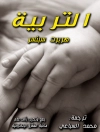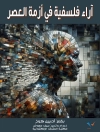Nietzsche’s philosophy is a philosophy of lightness, a lightness which doesn’t consist in breaking with gravity but in controlling it: being light is being able to take charge of life, ie bearing and loving it, wanting it.
This book is first devoted to Greek lightness for Nietzsche finds in Ancient Greece the pattern for an alleviation which enables to unload one’s drives without denying oneself. The study of Greek culture is thus the starting point of a close analysis of the “human, all-too-human” things, ie an inquiry whose orientation is definitely antimetaphysical, ie antiplatonic, antischopenhauerian and antiwagnerian:
- Nietzsche first shows that alleviation in religion has a “double face”: on the one hand, religion makes man’s heart heavy with sinfulness; on the other hand it lightens it with the fiction of a merciful God. True alleviation thus consists in freeing oneself from religious lightening, and proclaiming the radical innocence of everything.
- Nietzsche also criticizes alleviation in art, ie a romantic alleviation. He shows that – like alleviation in religion – it requires a previous heaviness. Therefore he praises a classical art and an aesthetic of lightness.
- Nietzsche eventually focuses on a philosophical alleviation of life, defined as a freeing of spirit. Such a definition leads him to develop the “doctrine of the closest things”, which consist of the organization of a dietary alleviation of life.
关于作者
Olivier Ponton, La Grand-Croix, France.
购买此电子书可免费获赠一本!
语言 法国 ● 格式 PDF ● 网页 354 ● ISBN 9783110204322 ● 文件大小 8.2 MB ● 出版者 De Gruyter ● 市 Berlin/Boston ● 发布时间 2008 ● 版 1 ● 下载 24 个月 ● 货币 EUR ● ID 2153988 ● 复制保护 Adobe DRM
需要具备DRM功能的电子书阅读器












